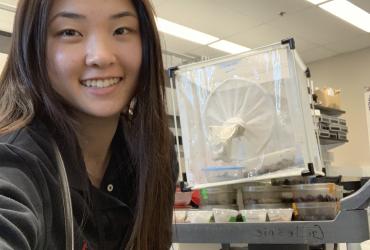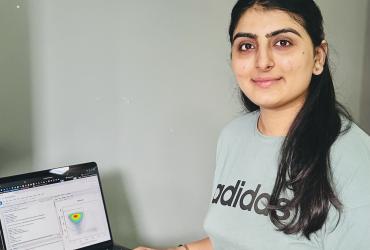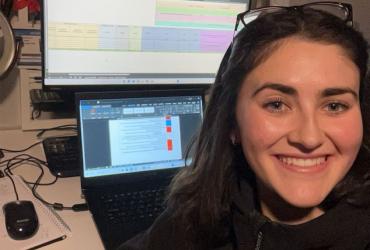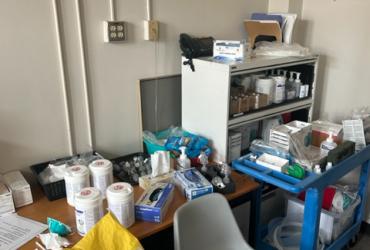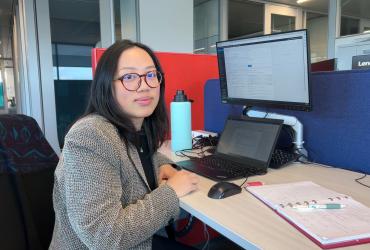Orientation and First Weeks
The first day on the job began with HR and mountains of paperwork, meeting my coworkers, and a tour of the facilities. All government employees must complete online training courses, which took a couple days to get through. Next I shadowed the other students in the lab, who showed me how to do things including DNA isolation following new protocols, sexing and sorting weevils all the way from Switzerland to send for ddRAD-sequencing and taxonomic identification, and pinning blackheaded fireworm moths. A lot of insect research is seasonal around summer, so a January start meant lots of time for reading literature on the study species (and SDSs of chemicals used in the lab) and getting familiar with the centre. I was tasked with digitizing data from experiments conducted last summer. As I didn’t know the protocol for these datasets I asked lots of questions and made sure I understood what the data represented, which helps in catching potential mistakes, which I discussed with my supervisor. It can be hard to interpret someone else’s data, which was a good demonstration of the importance of a clear datasheet. At the end of the first few weeks I attended an agriculture conference and watched talks from various scientists about their research on pests that affect growers. This solidified the reason and importance of our research.
Day to Day
A typical “day to day” for my main baculovirus project involves mostly rearing and colony maintenance of uninfected fireworm eggs, larva, and pupa in the mornings, infecting larva in the early afternoon, and maintenance/care of infected larva in the late afternoon.
Learning and Adaptation
Prior to this coop I have had experience working with insects and running behavioural bioassays, however I had no experience with any virus or molecular work. The learning curve was steep, and I had to learn entirely new skillsets quickly. I gained background information about baculoviruses from literature, and experimental procedures from my supervisor. I even had the opportunity to attend a cranberry growers conference to learn about the impact pests have on the industry, and hear about research other labs are working on. It was nerve-wracking to start working with a virus, although it cannot infect or harm humans, I was worried I could unintentionally transfer virus to our stable lab colonies and cause a colony collapse. This would halt the project until summer when new moths could be collected. Although this possibility still exists, I have learned the appropriate precautions/order to do tasks, and thus far have not had any unintentional virus mortality.
A great thing that our lab does for its students is host workshops on topics that are important to know for a future in science, but are often not taught in university courses. An example is on data sheet design as well as data storage. I implemented what was learned by creating and continuously improving my infection datasheet to make it more clear and streamlined to use.
Accomplishments and Challenges
One main accomplishment this semester was not in my research, rather in sharing my story with others. There were three tour groups of grade 6 students, a high school class, and a KPU biocontrol class that toured the Agassiz Research and Development Center. I was able to share my experience and path of how I got to where I am. I remember when I was a kid not understanding that research was a career path that was possible. I lived in a world of liking science meant you became a doctor or a veterinarian. If I had known that there was an entire world of research in whatever field you could imagine, I think I would have not felt so lost. If I knew there were opportunities to do research and work for the government as a university student, I would have gotten involved in coop or other paths to research experience sooner. I hope that even one of the kids found it helpful, and if not, then they all seemed to enjoy looking at cool bugs.
In relation to my research the past four months, I have embraced learning things that were outside of my wheelhouse. I was placed on my project with absolutely no knowledge of entomopathogenic viruses, and I am appreciative of the opportunity to learn an entirely new skillset. I have been given the opportunity to design and run my own experiment in the upcoming semester. I am currently in the designing phase and will be presenting my proposal in a lab meeting to get feedback and suggestions on how to improve my design prior to beginning the bioassays. This will be an invaluable experience if I decide to go to grad school, and although it is a large responsibility and workload, I am excited to see how it goes in the upcoming months.









